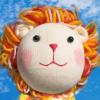
The most influential Taoist figure in last century: Chen Ying Ning
By
exorcist_1699, in Miscellaneous Daoist Texts & Daoist Biographies

By
exorcist_1699, in Miscellaneous Daoist Texts & Daoist Biographies